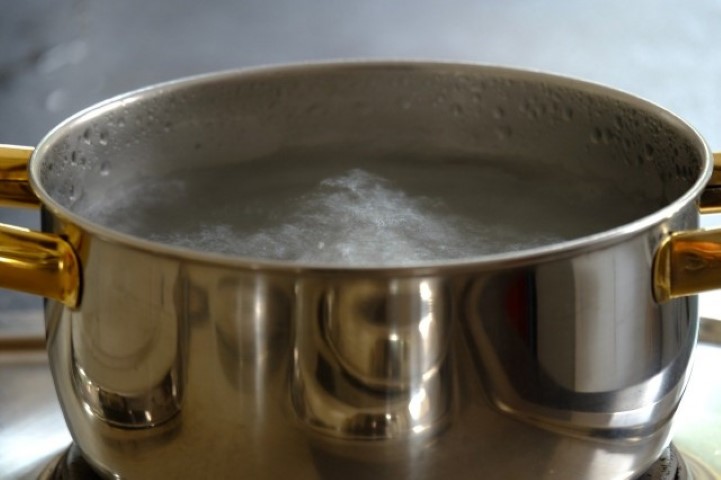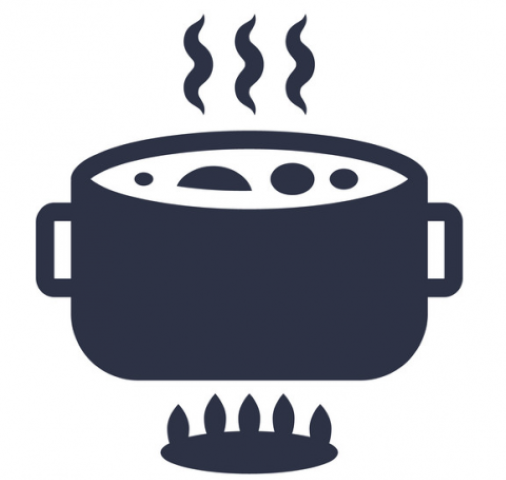Did someone say boil order?
If you live in a community and use or drink city water, most likely you've heard of boil orders, advisories, notices or something similar. Even though it might sound self-explanatory, it's important to learn the why and the what to do when it happens.
How did the idea begin?
When John Snow, an English physician and leader in the development of anesthesia and medical hygiene, recommended in the mid-1800s that water be "filtered and boiled before it is used," it was one of the most practical applications of the germ theory of disease in public health. This was the precursor to the modern boil water advisories we see today, and they're still happening – even with the advancement of science and disease control.
Why did we get this order?
A boil order can also be called a boil water advisory, boil water notice, boil water warning, boil water order or water boil order. Whatever it's called in your neck of the woods, if your local health officials issue one, you should use bottled water or boil tap water before using or drinking. The order means your community's water has, or could have, biological pathogens or germs that can make you sick. When a boil order is issued, it is usually as a precaution so consumers, especially the elderly, young children and those with weak immune systems are protected from potential drinking water contaminants. It is typically issued after an unexpected condition has led to biological contamination in the public water system.
Typically, our drinking water distribution system in America is pressurized and treated in various ways to ensure all have enough high-quality water in their homes and can safely use the drinking water supply regardless of their elevation or distance. When the order is given, it can sometimes be because of disinfection loss, low pressure in the distribution system water quality issues or a combination. This can often result in additional problems, like treatment disruptions, water line breaks, floods and power outages. System failure or in many cases, when a water main breaks, customers may not notice any changes to water pressure. Water operators continue to provide pressure to the water system while repairing a ruptured water main. If a large break occurs and operators cannot isolate the broken water main, the water pressure may start to drop, and a system-wide boil order may be issued.
Whenever the notification comes from local health officials, the reason for the order will be included. Questions or concerns about the boil order should be addressed by the local health department or municipality issuing the order. They will also lay out the next steps.
Now what?
Water boil orders may include information about preparing food, dishwashing and personal hygiene. If a boil order is issued in your area, take immediate steps to avoid consuming any contaminated water. To ensure your water is free from illness-causing agents, boil it using the following steps:
Water boil orders may include information about preparing food, dishwashing and personal hygiene. If a boil order is issued in your area, take immediate steps to avoid consuming any contaminated water. To ensure your water is free from illness-causing agents, boil it using the following steps:
- Fill a large pot with water.
- Place on stove top at high heat.
- Heat until you see bubbles come from the bottom of the pot.
- Once a boil is achieved, heat for one full minute.
- Turn off heat and allow to cool.
- Once cooled, place in a clean, covered container and refrigerate.
- Use as needed.
Continue this process as necessary until the boil order has been lifted. During this order, you can also do the following:
- Boil tap water even if it is filtered (for example, by a home water filter or a pitcher that filters water).
- Do not use water from any appliance connected to your water line, such as ice and water from a refrigerator.
- If you formula feed your child, provide your infant with ready-to-use formula, if possible.
Pets can also get sick from some of the same germs or spread germs to people. Give pets bottled water or if bottled water is not available, they should be given boiled water as instructed. During this time, tap water for household plants and gardens can be used.
Here are some go-to tips for typical household practices
Food Preparation
- Only use bottled or boiled water for preparing and/or cooking food.
- If possible, use disposable plates, cups and utensils during a boil water advisory.
- Household dishwashers generally are safe to use if:
- The water reaches a final rinse temperature of at least 150 degrees Fahrenheit (66 degrees Celsius).
- The dishwater has a sanitizing cycle.
- Sanitize all baby bottles.
- To wash dishes by hand:
- Wash and rinse the dishes as you normally would using hot water.
- In a separate basin, add 1 teaspoon of unscented household liquid bleach for each gallon of warm water.
- Soak the rinsed dishes in the water for at least 1 minute.
- Let the dishes air dry completely before using again.
- In many cases, you can use tap water and soap to wash hands during a boil water advisory.
- Be sure to scrub your hands with soap and water for at least 20 seconds. Then, rinse well under running water.
- If soap and water are not available, use an alcohol-based hand sanitizer that contains at least 60% alcohol.
- Be careful not to swallow any water when bathing or showering.
- Use caution when bathing babies and young children. Consider giving them a sponge bath to reduce the chance of them swallowing water
- Brush teeth with boiled or bottled water.
What do I do after the water boil order is lifted?
Once water is back on, customers may experience surges, bubbles and burps from water taps and fixtures as trapped air escapes the pipes. Flushing water from a high point of the plumbing, such as an upstairs bathtub, should help release air from your home's plumbing and to get rid of any contaminated water in your home. Anyone affected by the boil order should take these steps:
Once water is back on, customers may experience surges, bubbles and burps from water taps and fixtures as trapped air escapes the pipes. Flushing water from a high point of the plumbing, such as an upstairs bathtub, should help release air from your home's plumbing and to get rid of any contaminated water in your home. Anyone affected by the boil order should take these steps:
- Discard any ice cubes made in trays.
- Automatic ice machines should be run as normal, but ice cubes should be disposed for a 24-hour period after the boil order is lifted.
- If your refrigerator dispenses water, flush out with at least one quart of water.
- Discard any water used in humidifiers.
- Run one cycle on your dishwater after the boil order has ceased.
- Throw out any unused baby formula that was possibly mixed with contaminated water.
- Change water filters.
- Flush cold water pipes. Turn on water until it runs cold and allow to run for one minute.
- Clear hot water pipes. Turn all faucets on hot. Once water runs hot, allow to run freely for 15 minutes (for a 40-gallon tank) or 30 minutes (for an 80-gallon tank or more).
Finally, other drinking water orders or advisories:
A Do Not Drink water advisory, is when your community's water is, or could be, contaminated with harmful chemicals and toxins, and when boiling water will not make it safe.
A Do Not Use water advisory, is when your community's water is, or could be, contaminated with germs, harmful chemicals, toxins or radioactive materials. Under this advisory, any contact, even with the skin, lungs or eyes, can be dangerous. Do not drink or use tap water from the affected system for any purpose if the advisory is in effect, including for bathing. These types of advisories are rare.
If you're experiencing a boil order more often, it could be a sign that it's time for an infrastructure upgrade. Fehr Graham can help walk municipalities through the process from start to finish. From finding funding sources to overhauling entire water and wastewater systems, we've helped countless communities feel confident when it comes to water storage, treatment and supply systems.
Fehr Graham offers premier engineering, environmental and funding solutions services to ensure your community meets municipal water effluent standards. Contact us to learn more about our services, or give us a call at 815.235.7643.
Collaborative, Insightful, Results-Driven Solutions
Fehr Graham provides innovative engineering and environmental solutions to help improve the lives and communities of our customers.




